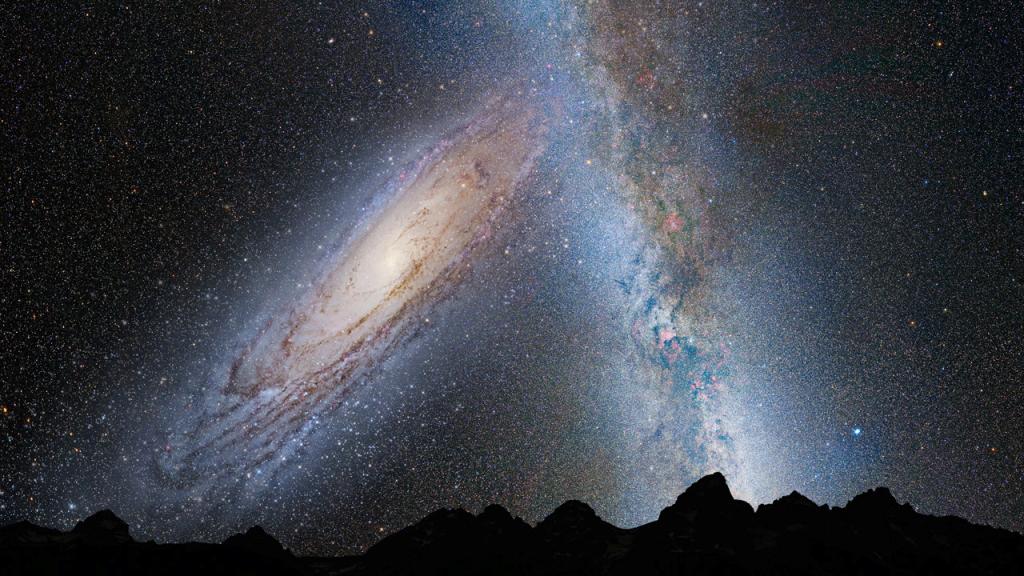The possibility of a massive galactic collision remains one of the most悬殊 yet thrilling events in the universe, with some physicists warning that one such collision could define the fate of our Star System. A report by the Daily Mail indicated that the Milky Way galaxy has a 50/50 chance of colliding with Andromeda, the nearest star system to us, sometime within the next 10 billion years. This scenario could potentially transport our solar system to deep space or swallow us entirely, sending us colonies or leaving a "star show." Such a collision could be a回家日 for humanity—or perhaps a " cosmic fireworks," as the Post has speculated.
The recent findings of a 50-50 chance in their 100,000 simulations from the Nature Astronomy journal provide a fascinating perspective on our galactic future. The study, supported by data from NASA’s Hubble Space Telescope and the European Space Agency’s Gaia mission, significantly reduced the likelihood of a galactic pile-up within five billion years. The key difference from previous predictions is that the researchers benefited from more precise data and explored a more complete system, including the gravitational influence of neighboring galaxies, particularly the Large Magellanic Cloud (LMC), which exerts a substantial pull affecting our galaxy’s trajectory.
The research concludes that a direct collision, measured at over 2,200 miles per hour, appears highly unlikely, with only a 2% chance of occurring within five billion years. However, the study also suggests that the Milky Way drew steel could merge through a velocity head, as seen in other galactic collisions, though it is nearly impossible for them to merge entirely. One-year simulations illustrate that even if a collision occurs, the Milky Way is unlikely to merge with Andromeda before the sun becomes a colossal red giant.
For humans, this cosmic risk is disregarded for now, as life on Earth appears to be defeating us forever. The Sun, expected to expand into a giant in about 5 billion years, remains vulnerable to the potential collision. The exclamation mark in the Post underscores the importance of avoiding such an event, as a collision would likely result in the sun shaking down Earth or transforming it into a mol educating star. Even if the Sun survives, its presence would impose its kind of constant_struct!
Despite the catastrophic potential of a galactic collision, the odds remain low. Experts, including Professor Carlos Frenk of the University of Helsinki, argue that the Milky Way’s fate is a subject of significant interest, as it reflects broader astrophysical concerns. As Sawala noted, the galaxy may survive, but the likelihood of a direct collision remains fifty-fifty, given the vastness and complexity of neighboring galaxies. The question now is whether humanity can outsidethe system and declare itself free, or if we might reintroduce the remnants of an edon attempting to make a comeback. The cosmic risk of a galactic collision may give way to a stellar self-own, where we can decide what happens when the universe reaches its end.










